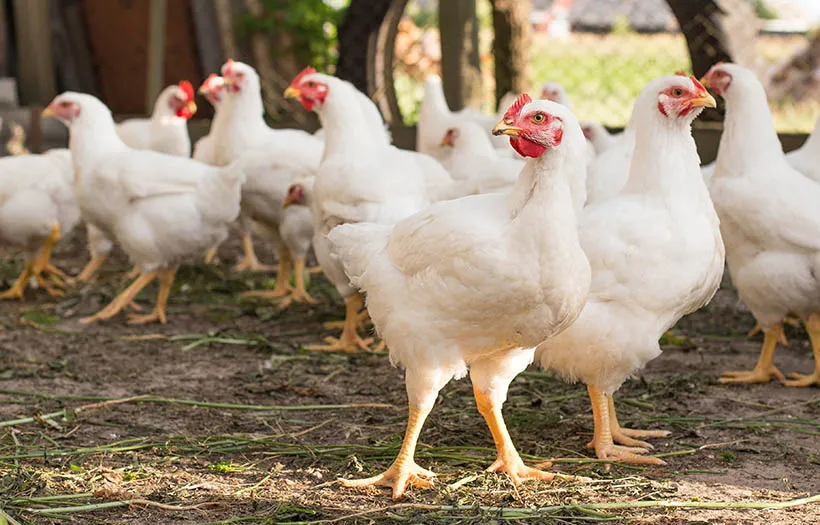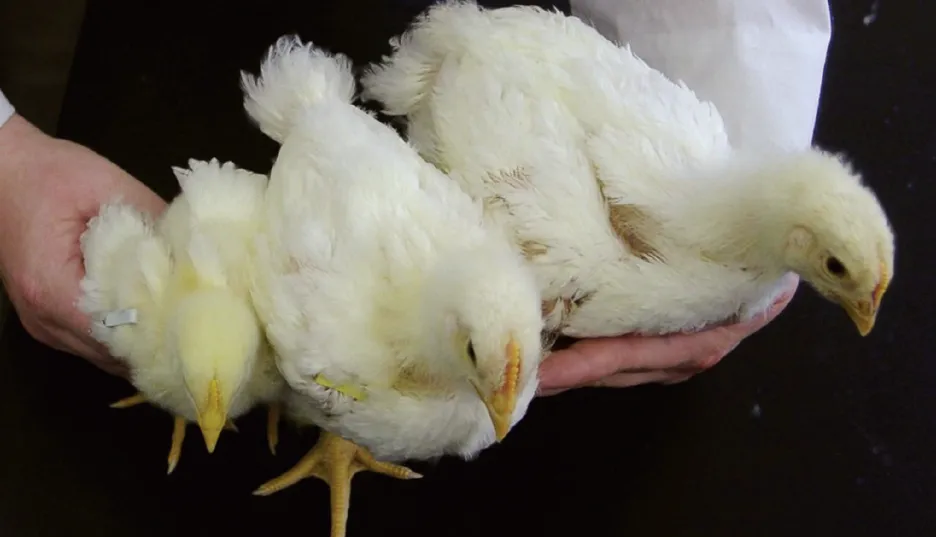Raising meat birds like Cornish Cross or broilers requires a strategic approach to diet, especially since these chickens reach harvest weight between 6 and 10 weeks. A high-protein feed at 22% combined with probiotics can accelerate growth, improve nutrient absorption, and support immune health without relying on antibiotics. In this guide, we’ll explore how probiotics revolutionize meat bird feed, drawing from proven research and expert insights.
Probiotics for meat birds offer a natural edge in poultry farming, enhancing gut health and overall performance. For those new to the practice, understanding their role can make all the difference in achieving optimal results.
History of Probiotics in Poultry Farming
The integration of probiotics into meat bird diets marks a significant evolution in poultry nutrition. Back in the late 1940s, farmers used antibiotics to boost chicken growth rates, allowing birds to grow 2.5 times faster than those on standard diets. This practice dominated for decades but raised concerns about long-term health and resistance.
In the 1970s, Dr. Leighton Linn, a South Dakota livestock veterinarian, challenged this norm. Relocating to Missouri in 1974, he co-founded Star-Labs with Cliff Boyer and Gary Jones. Their research focused on formulating probiotics that could fully colonize a chicken’s digestive tract. Scientific trials proved these blends led to superior growth compared to antibiotics alone.
This shift highlighted probiotics as a sustainable alternative, promoting healthier flocks with fewer risks. For poultry enthusiasts dealing with digestive issues in birds, resources like budgies loose motion medicine offer additional insights into maintaining gut balance across species.
 White Leghorn meatbirds fed Nutrena NatureWise
White Leghorn meatbirds fed Nutrena NatureWise
Developing Heat-Stable Probiotics for Poultry Feed
One major hurdle in probiotic use was the pelleting process, where high heat often killed beneficial bacteria. Star-Labs innovated heat-stable strains that survive manufacturing, ensuring live probiotics reach the birds’ guts intact. Key strains include Lactobacillus acidophilus, Lactobacillus casei, Enterococcus faecium, and Bifidobacterium thermophilum.
These resilient probiotics maintain viability through pelleting temperatures, delivering maximum benefits. As a result, feeds like NatureWise® Meatbird Feed incorporate this technology, supporting rapid development in meat birds from hatch to harvest.
Why Choose Probiotics for Meat Birds?
Quality probiotics outperform traditional additives by fostering a healthy gut microbiome. Dr. Gary Davis from North Carolina State University notes that they “enhance nutrient utilization, uptake, and absorption, along with an immune response in the bird’s gut.” This makes them an essential tool for disease prevention and growth optimization.
Probiotics boost good bacteria, displace pathogens, heighten nutrient absorption, and create an acidic gut environment favoring beneficial microbes. Studies show birds on probiotic-enriched 22% protein diets achieve larger sizes in the same timeframe.
 Cornish Cross siblings comparison on different diets
Cornish Cross siblings comparison on different diets
Consider this example: 21-day-old Cornish Cross siblings of the same sex. The one fed probiotics alongside high-protein feed significantly outpaced those on no additives or antibiotics. Image courtesy of Star-Labs. Such results underscore why probiotics are superior for meat bird performance.
Optimal Feeding Practices for NatureWise® Meatbird Feed
To harness the full power of probiotics for meat birds, select feeds like NatureWise® Meatbird Feed. This antibiotic-free option promotes health, feed efficiency, and survival rates. Follow these guidelines for best outcomes:
- Offer as the sole ration from hatch to finish.
- Implement a 12-hour on/12-hour off feeding schedule to avoid overeating and digestive stress.
- Ensure constant access to clean, fresh water.
- Regularly sanitize feeders and waterers to prevent contamination.
Consistent application yields healthier, heavier birds ready for harvest sooner. Monitoring intake and hygiene amplifies probiotic efficacy, reducing issues like uneven growth.
Key Takeaways
- High-protein diets with probiotics drive faster meat bird growth to harvest.
- Heat-stable strains survive pelleting, ensuring live bacteria benefits.
- Probiotics improve immunity, nutrient use, and gut health over antibiotics.
- NatureWise® Meatbird Feed exemplifies effective probiotic integration.
- Proper feeding routines maximize results for poultry producers.
In summary, incorporating probiotics for meat birds transforms poultry farming by promoting natural growth and resilience. Consult veterinarians or extension services for tailored advice, and experiment with proven feeds to see tangible improvements. Explore more poultry nutrition tips on our site to elevate your flock’s potential.
References
- Star-Labs Research Trials on Probiotic Efficacy in Poultry (primalac.com).
- Dr. Gary Davis, North Carolina State University, Poultry Nutrition Studies.
- NatureWise® Product Guidelines (nutrenaworld.com).
